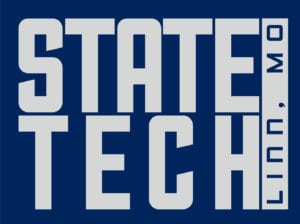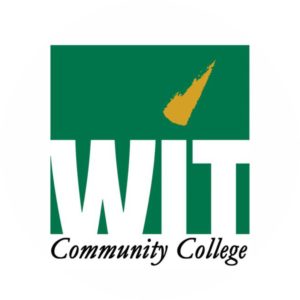Best Trade Schools in America

Find your perfect value college
Recent years have seen a decline in skilled labor and trades, which has prompted a renewed emphasis on technical and trade schools. Trade schools and technical colleges offer you the education you need without the extra courses that are often included to flesh out a traditional degree program. Trade schools and technical colleges cut out the classes you may not need and focus on providing you with the actual skills of your chosen trade. Skills like welding, fabricating, sewing, cooking, computer technology, and certain medical/healthcare skills take time to learn. When it comes to these types of skills, practicing them each day in a classroom setting is the best way to reinforce the learning process.
Why Go To Trade School?
If you want to start working in your chosen career field right away, you can enroll in a trade school or technical college (also sometimes called career schools or career colleges) and look for work as an apprentice or intern. Many students choose to pursue this route simply because it allows them to start honing their skills as they learn them. The combination of gaining hands-on experience while attending school to learn the trade is a win-win situation for everyone involved. Your employer gains a valuable employee who is continuing to learn the most advanced techniques possible. At the same time, you are building a career that will last you for many years to come.
Featured Programs
Trade schools, also known as vocational schools or technical colleges, are educational institutions that offer specialized training programs focused on specific trades or occupations. These programs are designed to provide students with the practical skills and knowledge needed to enter the workforce quickly and excel in their chosen field.
Unlike traditional four-year colleges or universities, trade schools typically offer shorter, more focused programs that directly prepare students for specific careers. They often offer hands-on training and real-world experience through internships or apprenticeships, allowing students to gain valuable practical skills that are highly sought after by employers.
What Can I Learn in a Trade School?
Trade schools cover a wide range of industries and professions, including but not limited to automotive technology, culinary arts, construction trades, healthcare professions, cosmetology, graphic design, and information technology. These institutions provide a viable alternative for individuals who prefer a more targeted approach to education and want to start their careers sooner rather than later.
One of the key advantages of trade schools is their emphasis on career readiness. The curriculum is tailored to meet industry demands and focuses on teaching practical skills that can be immediately applied in the workplace. This results in graduates who are well-equipped with relevant knowledge and hands-on experience necessary for success in their chosen field.
Furthermore, vocational school or trade school education tends to be more affordable compared to traditional four-year degrees. With shorter program durations and specialized training focused on specific skill sets required by employers, trade school graduates can enter the workforce faster without accumulating substantial student loan debt.
If you have a high school diploma, a vocational or trade school can offer certificate programs, general education classes, career and technical education. You can get some of the highest paying trade jobs with a degree from a trade or vocational school.
In summary, trade schools provide an excellent opportunity for individuals looking for a fast-track path into a specific profession. By offering specialized training programs that prioritize practical skills over theoretical knowledge alone, these institutions equip students with the tools they need for successful careers in various industries.
How Do I Choose a Trade School?
You should choose your trade school based on what you want to learn and whether or not they offer you the type of skills and training you are looking for. You should also take into consideration whether or not a school has been accredited. Trade school accreditation gives you the peace of mind you are looking for to ensure that you are receiving the education you deserve. Trade schools and technical colleges offer advanced skills and information that will allow you to begin working immediately after graduation.
Accreditation is the proof you need that the school and its educational programs meet or exceed industry standards on every possible level. In order to maintain their accreditation, trade schools and technical colleges must continue to meet the accrediting board’s strict standards each year. Accreditation is not a permanent award. Schools are reviewed on a regular basis to ensure that students are continually receiving the most up-to-date information possible. Choosing a school that has been accredited will also help to further your career if you are interested in advancing to a higher level.
What Can I Do With a Trade School Degree?
There are several things you can do with a trade school. There are many industries, including manufacturing and construction, that hire students right out of high school and provide them with on-the-job training. Most companies within these industries will pay for their novice employees to enroll in a trade school or technical college to speed up the learning process. By offering this option, they not only gain a valued employee, they have someone who is as knowledgeable as possible about the latest techniques and trends being used within the industry.
Students who choose to attend a trade school or technical college learn the skills they need much faster than if they would have enrolled in a traditional degree program. Every skilled trade requires specific knowledge and talents that are gained through hands-on participation in a classroom setting. Trade schools and technical colleges offer the hands-on training in addition to the classroom coursework that is required for a graduate to be proficient at their job. Attending a trade school allows you to enter the career field of your choice much sooner than later by providing you with the skills you need from the very beginning.
Trade school degrees open up a wide range of job opportunities for individuals seeking practical, hands-on careers. These degrees provide specialized training in specific trades, equipping graduates with the skills and knowledge needed to excel in their chosen field. Whether you’re interested in construction, automotive technology, healthcare, or culinary arts, a trade school degree can pave the way for a rewarding career.
The Best Trade School Jobs
Vocational training is all you need for most trade school jobs. Some of the trade school careers you can pursue with a trade school degree include:
1. Electrician: With a trade school degree in electrical work, you can become an electrician and work on installing and maintaining electrical systems in residential, commercial, or industrial settings.
2. Welder: Trade school programs in welding prepare individuals for careers in metal fabrication and joining. As a welder, you can work on projects ranging from construction to manufacturing.
3. HVAC Technician: Heating, ventilation, and air conditioning (HVAC) technicians are responsible for installing and repairing HVAC systems. A trade school degree in HVAC technology can lead to opportunities in both residential and commercial settings.
4. Automotive Technician: If you have a passion for cars and mechanics, a trade school degree in automotive technology can qualify you to work as an automotive technician or mechanic at repair shops or dealerships.
5. Medical Assistant: Trade schools offer programs that train individuals to become medical assistants who provide administrative support and assist healthcare professionals with patient care tasks.
6. Culinary Arts Professional: Trade schools specializing in culinary arts provide aspiring chefs with the skills necessary to thrive in the food service industry as cooks or chefs at restaurants or hotels.
These are just a few examples of the many career paths available to those with trade school degrees. Many pay more with just an associate’s than many bachelor’s degree jobs. By acquiring practical skills through focused training programs, individuals can enter the workforce quickly and pursue fulfilling careers that match their interests and strengths. Average trade school degree takes just two years.
Can I Get a Technical Degree Online?
There are several types of technical degrees that can be earned through an online degree program. Computer sciences, architecture, and some types of construction and planning degrees can be earned through online courses, but you may be required to take a physical test to prove you have the skills that are needed to earn your degree. Many students who cannot attend a classroom setting for any number of reasons can still benefit from this type of technical degree or certification process. Attending their classes online allows them to continue working. It also gives them an opportunity to learn in an environment that is most beneficial for them.
Earning a technical degree online offers students who are already employed an opportunity to learn the latest techniques and methods for their chosen industry. Some may already have the technical skills they need. Attending an online degree or certification program will keep them up to date on advancements that they need to be aware of in their field. By combining an online technical degree program with the hands-on education they receive while on the job, the student gets the best of both worlds while they work to build their careers.
In today’s competitive job market, employers are increasingly looking for candidates with practical skills and hands-on experience. This is where trade schools shine. Unlike traditional college degrees that focus on theory, trade schools provide specialized training in specific industries such as automotive technology, plumbing, electrical work, culinary arts, and many more. These programs equip students with the practical skills needed to excel in their chosen fields.
One of the biggest advantages of pursuing a trade school degree is the abundance of job opportunities available upon graduation. Skilled trades professionals are in high demand across various industries. Whether you aspire to become an electrician, welder, or HVAC technician, there will always be a need for these professions. In fact, some studies have shown that trade jobs often have higher employment rates than certain college majors.
Additionally, trade school programs tend to be more cost-effective compared to traditional four-year college degrees. Tuition fees at trade schools are generally lower than those of universities or colleges offering bachelor’s degrees. This means you can save money on tuition while still receiving quality education and gaining valuable skills that translate directly into the workforce.
Moreover, by choosing a trade school path instead of pursuing a four-year degree program at a university or college, you can enter the workforce sooner. While your peers may still be studying for their bachelor’s degrees and accumulating student loan debt, you could already be earning an income and building your career.
In conclusion, a trade school degree is definitely worth considering if you value practical skills and want to kickstart your career without breaking the bank. With its focus on hands-on training and abundant job opportunities across various industries, it offers a cost-effective alternative to traditional college education while equipping you with the skills and knowledge needed to excel in your chosen field. So why wait? Take the leap towards a rewarding career with a trade school degree.
Methodology: Ranking the Best Trade Schools in America
The entire purpose of Value Colleges is to guide students to schools and degree programs that will pay off in their life and career. That’s why our ranking of the best trade and tech schools features only accredited institutions with a career and occupational focus. Programs are selected according to factors including cost, potential salary, and student reviews, using data from IPEDS and Niche. The top trade schools also offer financial aid for associate degree programs.
1. Harper College

Harper College is one of the top tech schools in the area when it comes to teaching many of the most necessary skills for some of the most popular careers. As a student begins to practice their new skills, they may be able to apply for an internship or apprenticeship with a company that is involved in the same basic engineering skills you are interested in. Completing a skills trade program will provide you with the basic skills that you can use to move forward in your career.
At Harper College, you will be able to learn the skills you need from the best skilled trades programs in the area. Faculty members have been working in their chosen fields for many years and are drawing on that massive amount of experience to teach you everything you need to know before you go out and start looking for work. Once you graduate, the skills you learn will last you a lifetime and provide you with a career you can be proud of.
Harper College website
2. Holmes Community College

Holmes Community College is one of the best trade schools for teaching many of the hands-on skills that are needed in careers that involve skilled trades. Students who enroll in a community college often do so because they know that the bulk of their lessons will revolve around providing them with the hands-on skills they will need to succeed in whatever skilled trade they choose to pursue. By attending one of the top technical colleges, you will be able to trust that the skills you are taught offer you every advantage.
Holmes Community College not only provides state-of-the-art curriculum and resources, it also provides faculty and staff that are some of the most gifted in their fields. Many have years of experience as well as a college education they can draw from when teaching their classes. You get the full benefit of their experience while also being able to draw on the college education they have also completed.
Holmes Community College website
3. Minnesota State Community and Technical College

Minnesota State Community and Technical College is one of the best trade schools for teaching in-depth skills that are needed for students who intend to work in manufacturing, construction, digital marketing, and other hands-on careers. Students can rely on the unique programs to provide them with the highest quality education possible. As one of the best technical colleges in the area, the school offers well-rounded degree programs that provide both the knowledge and the skills that each student will need to build the best possible career path for themselves and their family.
Minnesota State Community and Technical College offer many of the best-skilled trade programs available in the area. The school offers a variety of scholarships for students who need financial assistance. Faculty members have the skills and abilities to provide students with all of the things they will need to be successful at reaching their career goals. This includes skills, knowledge, and the confidence they will need to apply for any position they choose to pursue.
Minnesota State Community and Technical College website
4. San Jacinto College

San Jacinto College is one of the best trade schools in the area when it comes to a positive hands-on learning environment. Students who enroll at the college are able to choose from one of the school’s award-winning programs. Each program consists of intensely focused courses that provide all of the necessary skills that a student will need for their chosen profession. Each student works one on one with the instructor to ensure they are fully grasping the concepts and methods being taught.
San Jacinto College is one of the best technical colleges for learning in-depth, highly specialized skills. They rank as one of the top 10 community colleges in the country according to the Aspen Institute. They have an unduplicated track record of having over 30,711 transfer students across all of their college programs. This means that these graduates have taken what they learned at San Jacinto College and went on to complete higher degree programs to complete their education.
San Jacinto College website
5. Southwest Mississippi Community College

Southwest Mississippi Community College is one of the best trade schools when it comes to teaching students the skills they need to be proficient in their chosen career field. The hands-on skills they learn prepare students to go to work and perform any task that is part of the duties for their specific industry. As a trade school, the curriculums that are provided are dedicated more to the skills that are needed than the basic courses most students don’t really need to perform their duties.
Southwest Mississippi Community College is one of the best technical colleges in the south. As a community college, the school makes it possible for members of the community to enroll in programs where they can learn the skills they need to further their careers. Skilled trades are the key to a brighter, more lucrative career for those who are not interested in going to college to earn a degree. Students who choose this path often do so because they enjoy working with their hands and want to get down to business when it comes to earning a living.
Southwest Mississippi Community College website
6. Southwest Wisconsin Technical College

Southwest Wisconsin Technical College is one of the best trade schools when it comes to providing students with hands-on skills they need to work in the career field of their choice. The college provides courses that build on the skills that are needed within each career field. The skills that are taught give students the ability to move forward in their careers and continue to gain the experience they need to advance up the ranks to the highest possible positions. As one of the best technical schools in the area, it offers students an opportunity for a brighter future.
Southwest Wisconsin Technical College is committed to providing each student who enrolls at the school the most advanced skills possible. Students who want a hands-on learning environment that will allow them to challenge themselves will find that at the college. Faculty members look forward to providing students with every possible advantage that they can use when trying to establish a career they can rely on for the rest of their lives.
Southwest Wisconsin Technical College website
7. State Technical College of Missouri

State Technical College of Missouri is one of the best trade skills in the Midwest. Students who are interested in learning specific skills that are needed for their chosen profession can rely on the school to teach them in a hands-on learning environment. Welding, cooking, carpentry, and many other careers that require unique skill sets are taught to students who want to make an immediate change in their lives. Employers rely on the best technical colleges to provide these skills to future workers.
State Technical College of Missouri has a trusted reputation for providing students with the skills they need. They have an ongoing percentage rate of 99% when it comes to job placement after graduation. Faculty members have years of experience and offer students an opportunity to learn by doing instead of just sitting in a classroom and observing. Students leave the school with a level of knowledge that is second to none when compared to other trade schools.
State Technical College of Missouri website
8. Wallace Community College

Wallace Community College – Dothan is one of the best trade schools in the US for teaching the skills many students will need if they plan on going to work immediately after graduation. Trade schools are known for teaching a variety of skills for several different industries. They do not focus on courses that are often used to flesh out other types of degree programs. Instead, the best technical colleges in the US center the bulk of their attention on the skills and talents the graduate will need to perform their duties once they enter the workforce.
Wallace Community College – Dothan offers many different classes for students who are interested in learning the specific skills associated with their chosen trade. From cooking to welding, acting to daycare, students are able to choose a career path they will be happy with for many years to come. The college allows students to explore all of their options when it comes to developing a career where they can use both their hands as well as their minds.
Wallace Community College website
9. Western Iowa Tech Community College

Western Iowa Tech Community College is one of the best trade schools in the state of Iowa for students who want to learn a trade they can count on for the rest of their lives. Trade schools and technical colleges offer focused learning programs that are concentrated primarily on the skills a student will need as they work toward building their career. These hands-on skills are the meat of the coursework and will allow students to enter the workforce much earlier than expected, either as an apprentice or a graduate.
Western Iowa Tech Community College offers over 70 programs for students to choose from. Each course can be used as a stepping stone to a higher degree program or can be used to lay the foundation for a long and very lucrative career. Students work with faculty members to identify potential weaknesses and build on their unique strengths. After completion of their program, students can look for work with confidence that they have the skills they need to succeed.
Western Iowa Tech Community College website
10. Western Technical College – Wisconsin

Western Technical College – Wisconsin is one of the best trade schools in the upper tier states when it comes to teaching a variety of trades ranging from digital marketing to manufacturing. The school provides intensely focused programs that provide the skills they need to lay the foundation for a solid career path that they can build on. Students can rely on the skills they learn at the best technical colleges to give them the career boost they need to succeed in reaching their career goals.
Western Technical College – Wisconsin offers many of the best technical and skilled trades programs in the state. Each program is designed to focus primarily on the skills that are needed instead of the coursework that is not. Students are taught by faculty members who have a firm understanding of their craft and are working diligently to ensure each student has the skills they need when they enter the workforce.
Western Technical College website



Related Rankings:
Top 50 Best Community Colleges
Top 50 Best Online Community Colleges in the US
Highest-Paying Community College Degrees
Highest-Paying Tech School Degrees
Community College Guide: Technical Schools
Trade & Vocational Degrees: What Can I Do with a Degree in the Trades?
Featured Programs
Aya Andrews
Editor-in-Chief
Aya Andrews is a passionate educator and mother of two, with a diverse background that has shaped her approach to teaching and learning. Born in Metro Manila, she now calls San Diego home and is proud to be a Filipino-American. Aya earned her Masters degree in Education from San Diego State University, where she focused on developing innovative teaching methods to engage and inspire students.
Prior to her work in education, Aya spent several years as a continuing education consultant for KPMG, where she honed her skills in project management and client relations. She brings this same level of professionalism and expertise to her work as an educator, where she is committed to helping each of her students achieve their full potential.
In addition to her work as an educator, Aya is a devoted mother who is passionate about creating a nurturing and supportive home environment for her children. She is an active member of her community, volunteering her time and resources to support local schools and organizations. Aya is also an avid traveler, and loves to explore new cultures and cuisines with her family.
With a deep commitment to education and a passion for helping others succeed, Aya is a true inspiration to those around her. Her dedication to her craft, her community, and her family is a testament to her unwavering commitment to excellence in all aspects of her life.